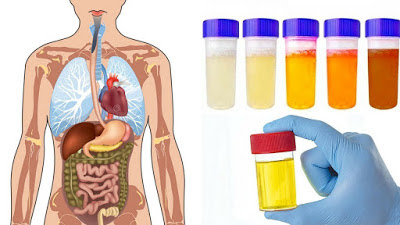What Does The Color Of Your Urine Say About Your Health
Trough the urine, our body removes the excess water and salt, but in same time removes the urea and other waste substances which are removed from the blood by the kidneys.
Normal color of the urine is yellowish, but there are certain foods, beverages, medications or some diseases which can change the color and odor of the urine.
For example, if you drink small amount of water, your urine will have a darker color and will become more concentrated.
Abnormal Urine Colors
There are many factors that change the color of the urine, and the urine can become dark brown, blue, red, cloudy white or even green.
As it is already mentioned, certain foods, an infection, medications or even some very serious medical condition will change the urine color. So, if you notice any unexpected changes, it is highly advisable to visit a doctor and get a diagnosis.
Red or Pink
Foods like beets, blackberries, rhubarb or carrots can change the color of your urine. Also, certain strong medications, such as rifampin, can change the urine color. However, if you notice that your urine has red or pink color, and you did not eat these food or you don’t take pills, it is advisable to visit a doctor, because such color change also might indicate a kidney disease or a tumor.
Orange
If you take B2 medications, UTI drug phenazopyridine or antibiotic isoniazid, it is most likely that your urine will have orange color. Also, if you don’t drink enough water, your urine may turn orange. However, if you feel any pain and the color of your urine is orange, the reason for that might be liver problems, so consult with your doctor or a specialist.
Green or blue
The pigment change of the urine usually is caused by medications like anesthetic propofol or promethazine. But, in case if your urine doesn’t become yellowish once you stop taking the meds, consult with your doctor.
Foamy urine
Kidney problems often make the urine foamy, so if you notice that you have foamy urine for a longer period of time, visit a doctor – immediately!



